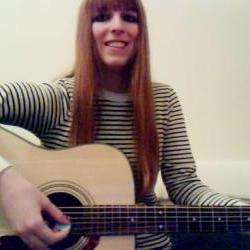When’s the last time you were simultaneously awake and truly unaware of what time it was? You probably can’t remember, right? These days everything is time-stamped; everyone constantly checks their phone as they hurry from one task to the next. But on Saturday at the newly-reopened ISSUE Project Room in Brooklyn, a lucky group of listeners got to escape time during an unbelievably surreal experience. The audience, isolated from the snow and chaos of the outside world, witnessed R. Andrew Lee’s performance of a five-hour minimalist piano piece by Dennis Johnson. People came and went throughout the five hours as during other minimalist landmarks, such as Philip Glass’ opera Einstein on the Beach, which was also performed in Brooklyn recently in a rare revival. But the five hours of Einstein on the Beach seem like a trip to the circus compared to Dennis Johnson’s November, a glacial and mostly quiet piano solo. The coming and going was done on tiptoe; people also meandered stealthily from one side of the room to the other so as to observe varying views of the piano, which was situated in the middle of the space. The listeners brought snacks with them but did not eat them. They stifled coughs and sneezes. I have never been so aware of my heartbeat or the rhythm of my own breathing. I could hear my bones shifting against each other as I uncrossed my legs. In the dreamlike world created by Dennis Johnson’s music, all sounds entered an entirely new dimension.
The experience was not only transcendental but historically significant: predating La Monte Young’s Well-Tuned Piano and Terry Riley’s In C by five years, November’s existence basically rewrites the history of minimalism. The 1959 composition was recently rediscovered and reconstructed by composer/musicologist Kyle Gann, who transcribed the only surviving recording – 112 minutes of an apparently six-hour-long work – and then offered suggestions on how to continue the piece from there. Dr Lee performed the first 112 minutes of the transcription and then improvised off of Dr Gann’s suggestions for the remainder of the piece. Both men deserve medals for their devotion, and in Dr Lee’s case, for brilliantly realizing such an intimidating amount of music without a single pause or break. The epic piano piece, according to La Monte Young himself, heavily influenced his Well-Tuned Piano, another marvelous, quasi-improvisational minimalist classic. November is similar in many ways to Young’s quintessential work, minus the mind-boggling tuning system (and therefore chords that are very jarring to a Western-trained ear) and the very wide range of dynamics. Both pieces lack a sense of expectation or direction, and with the destruction of teleology, there is the creation of a certain timelessness.
From the solemn opening, I was hypnotized. Listening felt like watching snow descend in slow-motion, or like watching dust falling through light. I was able to truly hear every note and its overtones and the colors formed as new notes blended with the notes I had already wrapped my mind around. The repetitions and evolutions built themselves into a fluid architecture that seemed so unreal, I found myself tracing patterns on the wall just to feel something solid and know it wasn’t all a dream. The return of intervallic concepts – for instance the introductory minor third – languished with heavy meaning and intimacy as the piece constructed itself in continually surprising (but never distressing) ways. I found immediate comfort in the fact that my wish for the music to go on forever would practically be granted, and this comfort carried through to the ending, which felt as strange yet natural as waking up from a serene sleep. Because we weren’t rushed in our listening, we didn’t have to scramble after our own thoughts as with dreams upon waking; we had experienced it all in the alternate universe of minimalism. In the absence of time, we had time to hear everything.


